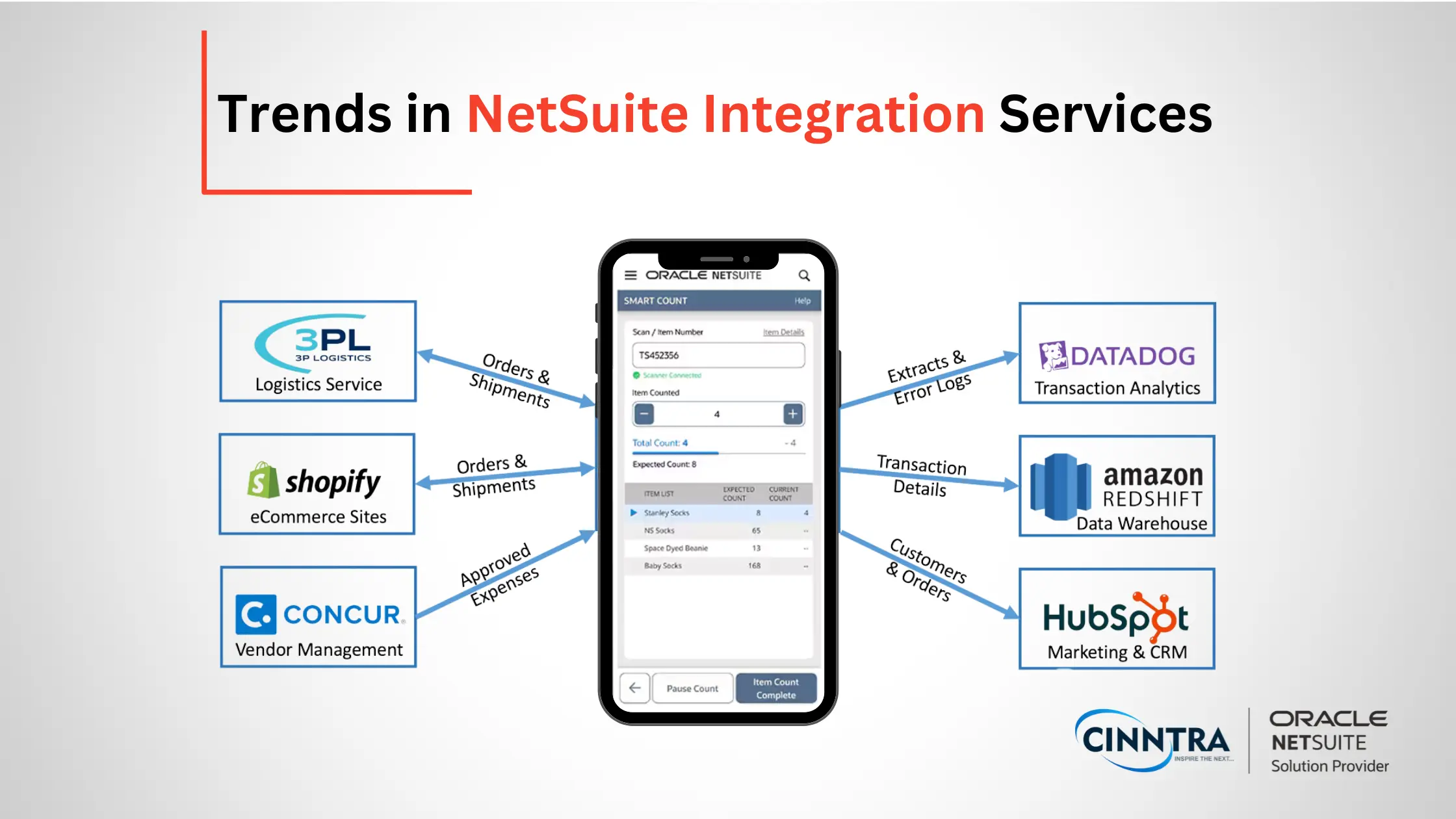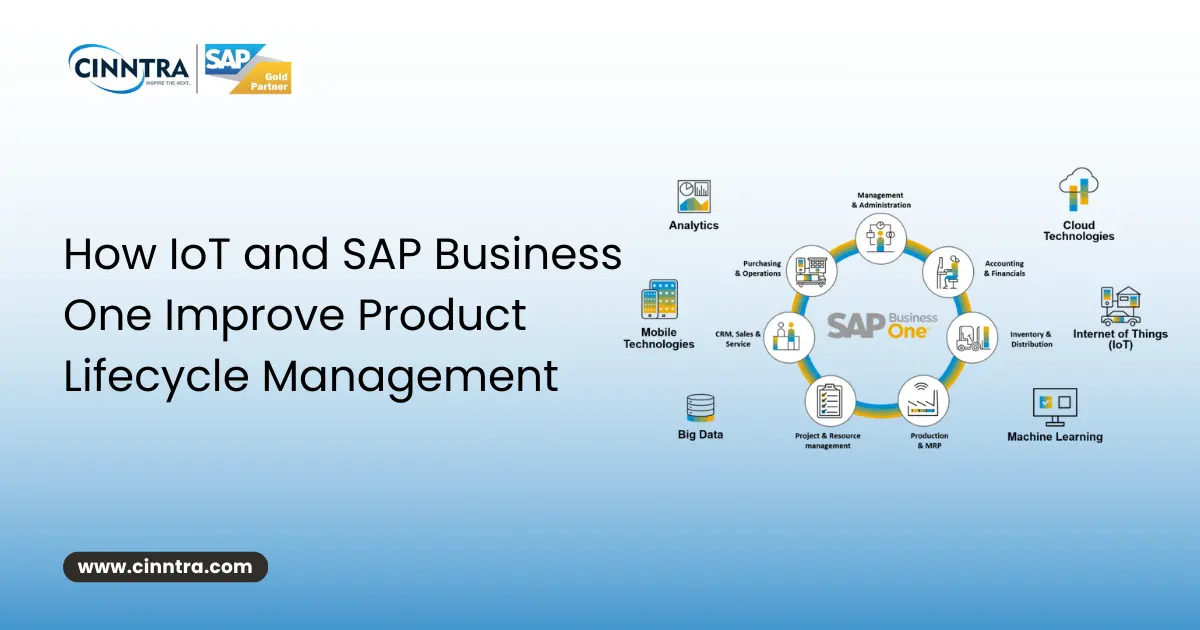2025 Trends in NetSuite Integration Services

Core System Integration is critical to remain competitive and efficient in business today with how fast things move today. As a widely used cloud-based Enterprise Resource Planning (ERP) system NetSuite Integration provides good layers for implementing Business Process Management.
Unless you start integrating with other key applications like CRM systems, e-commerce platforms, and supply chain management tools to name a few.
In this in-depth post, we will outline 7 basic pieces of integrating NetSuite, the impact, advantages, and trends so as to enhance your business processes and surge growth.
What Is NetSuite ERP Integration and How Important Should You Make It?
NetSuite Integrates the cloud business management software into ERP applications with other systems and applications in the organization. It integrates data to offer easier data flow across the systems via Services and APIs the best feature.
NetSuite ERP Integration with the help of CRM systems, eCommerce sites, and other ERP solutions is a way for businesses to consolidate data, automate workflows, and a consistent picture of operations.
This eliminates data duplication, lowers errors & keeps all the departments aligned to the same information. A Deloitte study found companies that integrate their ERP systems with other enterprise applications can deliver efficiencies of up to 30%.
NetSuite Integration Key Benefits
Process Automation
NetSuite Integration eliminates the necessity of data entry tasks that are often performed manually replacing it with process efficiencies and accuracy. Tasks of order processing, inventory management, financial reporting, and CRM can be automated.
For example, an order placed on an eCommerce site will automatically update inventory in NetSuite, create the invoice, and activate all processes (shipment / PayPal payment, etc). It saves time and results in better accuracy.
Real-time data analytics
All data from disparate systems are aggregated in Integrated systems to offer one single pane of glass view of your business. Real-time data means managers can make more informed decisions. For example, sales data in a CRM with finance data in NetSuite gives you the entire company's performance. With this comprehensive view organizations are able to pivot quickly in response to the market and make strategic calls with confidence.
Gartner found that using real-time data insights from integrated systems gave an annual improvement of 15% in speed and decision accuracy when making business decisions.
Enhance Collaboration
NetSuite Integration improves the collaboration between departments. People from segregated data residing independently in different systems have difficulty communicating with each other and also being efficient. Separate systems mean that each department can work off the most current information, and provide better collaboration and efficiency. For example, the sales team will be able to tell how much inventory exists and when production is scheduled enabling an empathetic conversation with a customer. The finance team gets real-time sales and expenses to plan correctly as well.
Establishing NetSuite with other key systems such as CRM platforms, eCommerce solutions, and supply chain management tools leads to a lot of advantages that drive operational excellence or growth in numbers.
Better Data Accuracy and Consistency
Integrating NetSuite helps in ensuring data consistency and accuracy across all the synced platforms. You simply enter data from the point of a source and that data is live synchronized across the rest of your other bodies of one ERP namely stored, processed, etc. For example, when customer details change in your CRM those details are updated automatically in NetSuite which in turn syncs the sales and marketing of other departments with the current state.
This uniformity is important in keeping records correct, customer service gets better and business compliance satisfies various legislations.
Automation of Important Functions
Functions such as order processing (NetSuite integration), invoicing, inventory management, and financial reporting are all automated when you use NetSuite. For example, the order placed on your eCommerce website will auto-update the inventory of NetSuite and invoice you, while you get all the shipping processing done for you automatically.
The automation efficiently speeds up operations with more time for employees to strategically engage.
Enhance Operational & Visibility with Real-time Insights
Data from different systems is brought into a single platform which consolidates data from the integrated systems for better operation coverage. The full picture allows managers to access real-time data and produce meaningful reports that will help them make smarter decisions.
When you pull sales data from your CRM and sync it with NetSuite financials, for example, you get a full picture of how your business is performing.
Better Collaboration and Connectivity
Better departmental collaboration through having real-time common information shared by all teams Integration: Aligning various functions towards a clear set of goals will also enable operations to become as seamless and effective.
Top NetSuite Integration Solutions to Go with
So the right NetSuite integration is very important to max out operational efficiency and move business onto another level. It is mostly about you knowing your business requirements and the different Integration tools available.
Know Your Business Needs
Find out the systems to be integrated with NetSuite (CRM or eCommerce platforms) and the workflows that you want to automate as a part of this. For example, Connect NetSuite ERP with a CRM system like Salesforce improves customer relationship management by the sales reps to have relevant customer information at their fingertips inside the CRM.
Evaluate Match and Scale
We have so many integration tools in NetSuite:
Native Great for plug and play, operating as intended within the ecosystem that is NetSuite.
Third-party iPaaS Platforms (Celling or Boomi) with built-in integrations for popular applications.
API Solution: More flexible but harder to build.
Make sure the solution you decide to use will scale with your business needs.
Ease of Use and Implementation is a Consideration
Integration complexity varies from solution to solution some have a friendly UI that requires very little technical savvy, while others will likely demand an admin level. Test your resources, including IT staffing, and decide on feasibility.
Make Data Secure & Compliant
Data security is paramount: integration solutions that meet industry-level security specifications. Search for providers that have strong security, such as encryption and frequent audit results.
SuiteCloud Platform
Change your NetSuite Integration experience with SuiteCloud Platform on the market today which streamlines the integration and customization of NetSuite for small companies.
SuiteCloud
Integrate and connect with any external business system via open RESTful APIs seamlessly.
-
Use point-and-click tools for customizations.
-
Use APIs to navigate or customize any data elements in detail.
-
Use visual workflow tools to automate processes.
Key Suite Cloud Components
Suitebuilder: Add your own data to the NetSuite platform with an intuitive customization tool
Access Management: Ensure data security by controlling user access SuiteScript: Write custom logic using JavaScript APIs.
Suite Analytics: Workbooks available for real-time queries with an easy-to-access dashboard
SuiteFlow: Automation of recurring tasks by means of workflows
SuiteTalk: Connect to external applications using extensible REST APIs of your choice.
SuiteApp Marketplace: Browse the partner's market for applications function developed. SuiteCloud capabilities mean that customizations are automatically passed on to each update of NetSuite (and other EMMs) with Suite.
Easily Manage your Data with NetSuite Connectors
They serve to simplify data management in multiple Sales Channels (ECS stores / or 3PL providers) through centralized data in NetSuite using data connectors.
Key Benefits
Synchronized by Sales Channels: Have inventory orders synchronized seamlessly across all channels so you can keep track of them.
E-commerce Handling: One place to manage your product information for all online stores
Supply Chain Integration: Merge 3PLs for improved shipping agility
POS Integration: Aggregate Product information from Shopserver/POS and sync with an ERP suite like NetSuite.
Supported platforms: major eCommerce platforms (Shopify) integrated with their logistics platforms(ShipStation) or POS systems (E.g., Oracle Simphony)
A Brief on NetSuite Integration Tools: SOAP vs. REST
NetSuite Connectors usually leverage the SOAP (Simple Object Access Protocol) or REST (Representational State Transfer) web services to achieve integration
SOAP Web Services
NETSUITE connectors more often than not have SOAP, or RESTful web services for linking you to an application.
RESTful Web Services
We follow the older, flatter model where HTTP methods (GET, POST) define what you want to do [REST].
SOAP is known for its capabilities this wraps messages in XML and sends them over HTTP or HTTPS. An example of why built-in security protocols can be advantageous: these are the security features most applications require.
REST Web Services
REST has a more pragmatic approach involving standard HTTP methods (GET, POST). It usually relies heavily on JSON for its data interchange mechanics this is substantially faster than XML; it is the norm in web applications where performance matters.
SOAP vs. REST Selection
Would you prefer SOAP or REST for your integration needs:
Security Requirement: SOAP is likely the better choice if you need advanced security features
High-Performance: REST is lightweight so it's perfect for the speed-sensitive app.
Measure Complexity: SOAP is more complex than the simplicity of REST.
Obtain Impactful Solutions with NetSuite Integration Services
Integrating NetSuite with core business systems is a transformative strategy that enhances operational efficiency through improved data accuracy, automation, and real-time analytics.
The NetSuite SuiteCloud Platform facilitates seamless system connectivity by enabling businesses to streamline processes and adapt to market changes. Through robust data synchronization and customization capabilities, organizations can optimize their operations and maintain a competitive edge.
NetSuite Integration Partners like Cinntra work with Gartner research showing that 75% of businesses achieve faster, more successful implementations through expert partnerships.



0 Comments